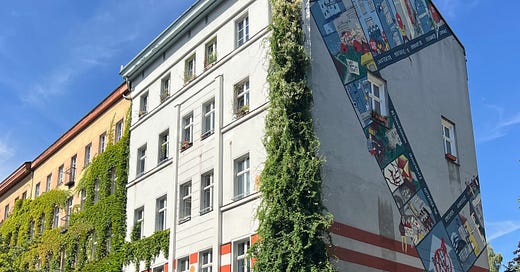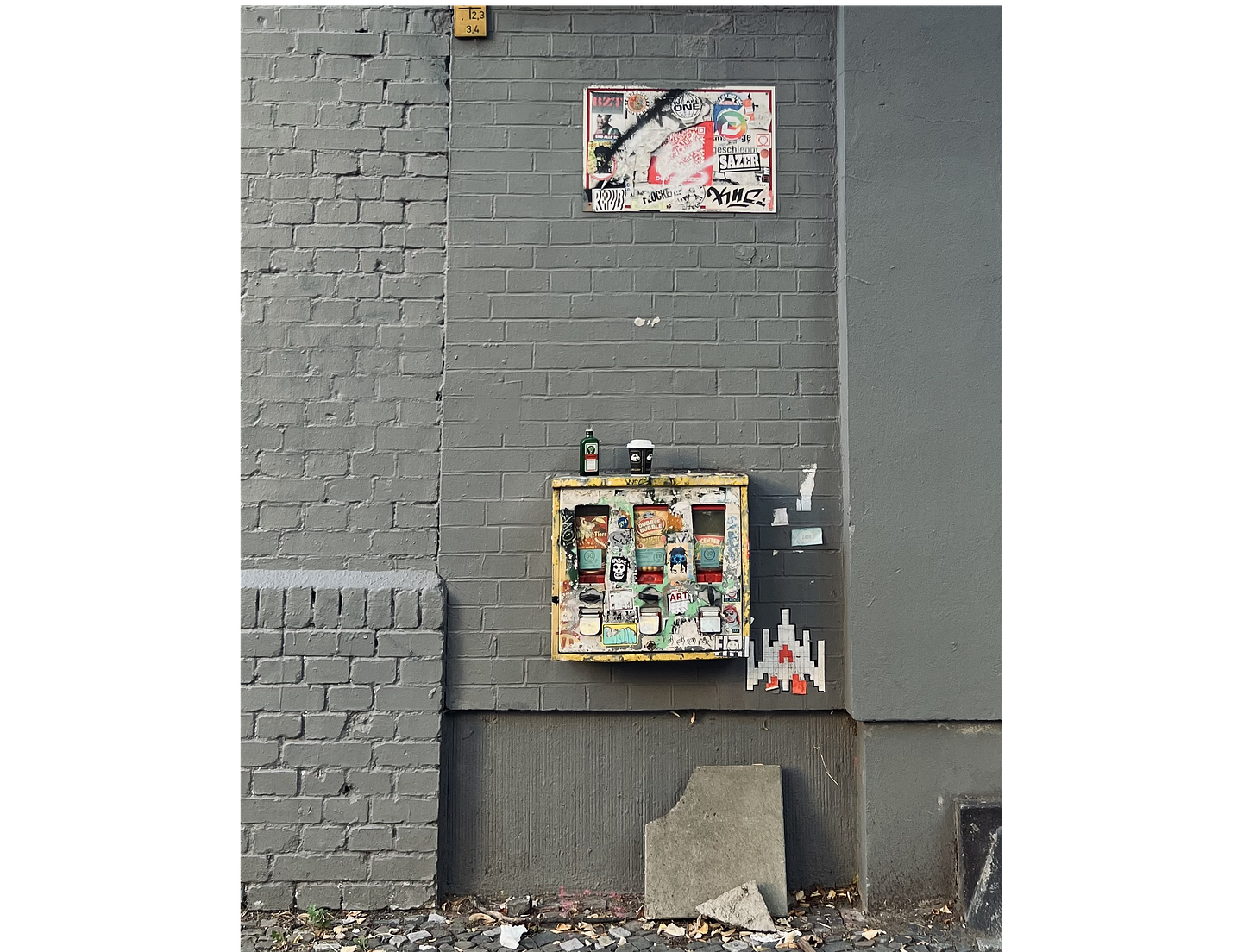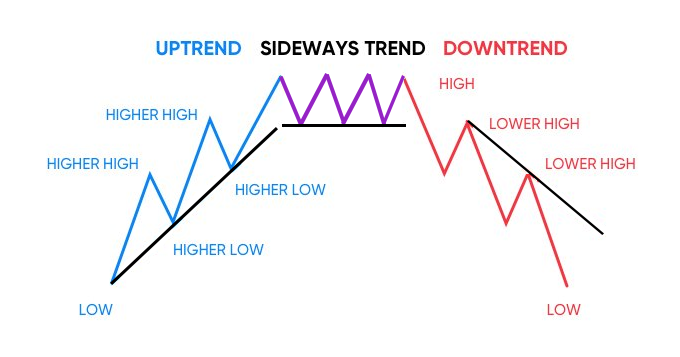Kreuzberg, New York, and the Momentum of Energy
“Energy, not time, is the fundamental currency of high performance.” ― Jim Loehr
I’ve been in Berlin-Kreuzberg for a little more than a week and at first, I thought it was exactly what I needed: quiet and relaxed, the antidote to New York’s noise and nonsense.
Until last summer, I had not spent much time in Berlin and I have to admit that I feel a little silly to “discover” the city now — as a German and in my late thirties no less. But here I am, walking from one neighborhood to the next, unable to keep my mind from spinning or my hands off the keyboard. I will share my observations in a future post. Today, I want to explore one inner conflict I wrestled with.
How does one end up in a new city? Leaving family ties aside, I thought it boiled down to economics (career and education), eros (relationship), ecstasy (entertainment, culture), and environment (weather, architecture, geography).
That’s how things worked out for me. I had moved to New York for a relationship and, after the divorce, stuck around for work and culture (and perhaps out of a sense of stubbornness). But reflecting on my return after COVID, I think it was the city’s energy that pulled me back.
I remember stepping out of the subway in New York for the first time in 2008. Herald Square in midtown, near Macy’s of all places. I could feel the city’s energy wash over me like the swell of the ocean. This was different, I thought, and it was. There was a wave of subtle intensity, one that I could learn how to ride. Surfing New York meant walking faster, thinking faster, working later, wanting more, and wanting it sooner. The city’s groundswell compresses time and blurs the days into a haze of activity, an experience that I suspect is shared among inhabitants of the high-energy places.
I used to think I needed that boost. I felt behind in life and New York’s pace seemed like an opportunity to catch up, to finally move on the left lane and hit the gas pedal hard. Turns out, I drove loops in a parking lot with a great sense of urgency. But that’s another matter. The energy was real.
There was no such wave in Kreuzberg. Kreuzberg, as the waitress from Guadalupe put it, was tranquilo. The first day it felt so quiet, I wondered if I had stepped into one of those hidden camera comedy shows, “push the mute button on Berlin and see how he reacts.” Granted, it’s summer and everyone’s on vacation. Still, it freaked me out just how chill everything was.
A couple of days later, I walked past a gas station. Not much more than a neon sign and a store for late-night snacks. Two people were sitting there, leaning against the sign, drinking. It was like eleven in the morning and their eyes already had that distant watery gaze.
A little jar fell over in my mind and its lid came off and a bunch of memories and feelings spilled out and unspooled. There it was, the Deutschland I had long left behind, a land of welfare and cheap booze, a land of Suff. I looked at Kreuzberg with different eyes. All I could see were people day drinking, all I could hear was the cough of lifelong smokers, all I could feel was rejection.
“Everything that irritates us about others can lead us to an understanding of ourselves.” — Carl Jung
The part of me that loves New York’s high-strung ambitious energy can’t stand laziness, least of all in me. I think that part started to worry. Would I, if I stayed in Berlin for too long, let my life meander into pleasant nothingness? Did I have the capacity to turn into an aimless drunk?
“To the extent that I’m an unreliable person, I’m hypersensitive to acting like a reliable one,” wrote David Milch. “My deepest belief about myself is that given half a chance, I’ll steal your dope and help you look for it, so I try to be rigorous going against that.”
It was that kind of hypersensitivity, a fear that I just pretended to be ambitious and hardworking, that fear surfaced and violently rejected my desire to relax and lie blissfully in the park. It’s like I had to prove that I was not as chill as the people of Kreuzberg. So I walked a lot, every day. Which was great. But I carried that image of the two drunks at the gas station with me.
Having said all of this, energy is real and places, people, and activities affect it. I think of the energy level as looking like a stock chart: it ebbs and flows with highs and lows. And your energy capacity, your vessel so to speak, can expand and contract, which looks like upward or downward momentum.
This makes “How did this affect my energy” such a simple yet effective prompt for journaling. After meeting someone, ask if you feel encouraged and energized or drained and doubtful. It’s particularly valuable when there is a disconnect between thinking and feeling, in dating for example. Sometimes you want a relationship to work, yet the time together drains energy. That’s a big red flag.
People treat high-energy places like a fridge full of Red Bulls. Instead, they should think of intensity as something that can wear down and break. They should handle it with care, like a flask full of acid. If you don’t take a break and disengage, you turn into Nassim Taleb’s Thanksgiving Turkey. Every time the vessel is empty, you crush a red bull until one day the flask breaks and there’s acid all over your life (and not the fun kind). You feel the urge to drop out and open a surf shop in Bali when all you needed was a lazy summer in Berlin, far away from emails and social media, and the need to judge people who don’t rush.
I’m leaving Berlin early tomorrow morning for some family time. I will miss the food (got some amazing recommendations from local subscribers, thank you!), the bakery that offers nothing but different kinds of fresh Baklava (!), and the streets filled with cafes, laughter, and the chill people of Kreuzberg.
I will visit again, but I am unsure whether I would like to move here. The thing is, I do like places that boost my energy, that inspire me. I like being around passionate and driven people, dreamers who take action. There’s nothing wrong with a lazy day in the park. But a lazy life in the park is not for me.
Then again, maybe where I end up is not up to me. Perhaps I will just move wherever I fall in love again.
Have a beautiful weekend,
Frederik
A few things I’ve enjoyed reading and listening to
I’ve been avoiding social media and podcasts but sometimes I can’t resist. Ti Morse interviewed Chris Power of manufacturing and defense startup Hadrian. Around minute 21, Power said something that stuck out to me: “Hadrian is an effort basically to Fourth Turning cycle, primarily so that the CCP doesn’t end up owning the world government, that is the entire purpose of this company.”
His argument is to prolong Pax Americana, wait out the global demographic collapse, win the space race, and thus ensure that human space colonies will be liberal and democratic rather than authoritarian.
It struck me that it would be completely uncouth for a German to think, let alone say, something like that, to display such a sense of agency and historical significance. Now, you can think he’s wrong about China and the Fourth Turning, you can believe his effort is doomed or that it’s all hyperbole, you can even argue that there never will be human colonization of space. But you can’t deny the striking sense of purpose and urgency. Irrespective of what happens, sustaining that kind of vision requires a place with the right energy.
A Stalled American Dream by Chris Arnade. Chris went on another walk and things didn’t turn out as expected. A raw account of pre-election America where things haven’t changed much.
Chris Bryant on the perpetual Twitter hot button: “Rich US Tourists Will Make Europeans Feel Poor.”
What’s keeping me busy on the road: All the King’s Men by Robert Penn Warren (David Milch’s mentor). I’m only a third into the book but so far it’s a spectacular read. Occasionally, Warren unleashes bits of mind-bending prose. Highly recommended.
The end of man is knowledge, but there is one thing he can't know. He can't know whether knowledge will save him or kill him. He will be killed, all right, but he can't know whether he is killed because of the knowledge which he has got or because of the knowledge which he hasn't got and which if he had it, would save him.
Also, Gustave Flaubert’s Madame Bovary which I picked up randomly as an old paperback without a cover. It’s a slow book in terms of story but richly rewarding in style. Flaubert’s metaphors are breathtakingly elegant.
Human speech is like a cracked kettle on which we tap crude rhythms for bears to dance to, while we long to make music that will melt the stars.
If writing feels like banging against an old kettle, as it often does for me, read some Flaubert and pay attention to the imagery he uses.







Loved this. I too have always felt that urgency to push against what I assume is my innate laziness. Lately, however, I've been asking myself: Am I *actually* lazy, though? Or have I just convinced myself that deep down, I must be slothful, as a way of justifying my current pace?
I've been dragging my feet on starting an energy journal, but having read how well it worked for you, I think now I'm ready to give it a whirl.
So many wonderful turns of phrase in this essay Frederik. Not to mention the story and the message.
“Turns out, I drove loops in a parking lot with a great sense of urgency.”
I love reading your stuff and I learn so much as an aspiring writer. 🙏